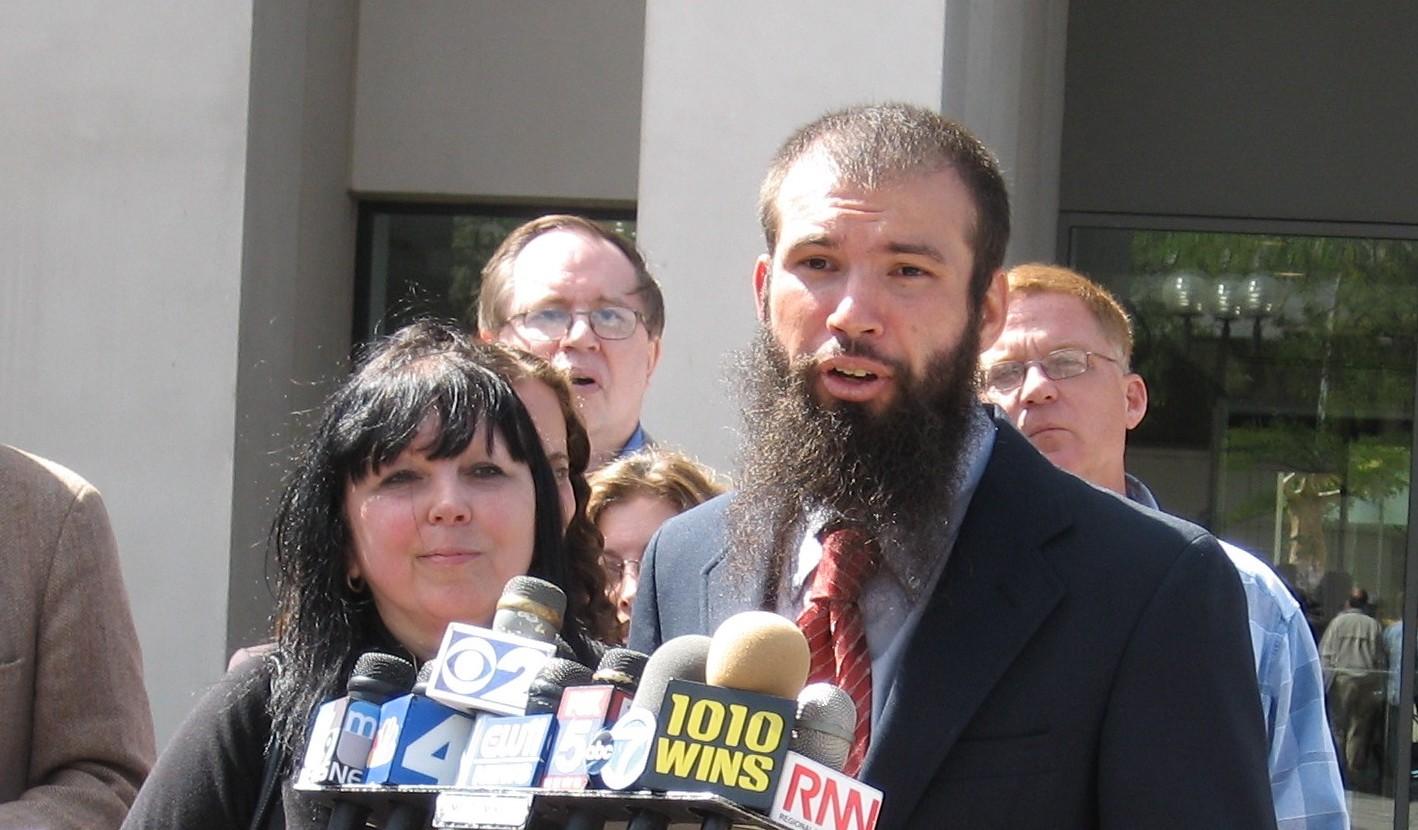Why Rooting Out Rogue Prosecutors Isn’t Enough
Experts say New York’s Commission on Prosecutorial Conduct is an important first step, but the problem isn’t just misconduct—it’s the way prosecutors wield their discretion every day.

Jeffrey Deskovic spent 16 years—from the age of 17 to 32—locked up in New York prisons for a 1989 rape and murder he did not commit. Despite potentially exculpatory DNA and hair evidence, the prosecution forged ahead with their case, according to a civil lawsuit later filed on Deskovic’s behalf.
Of the 250 exonerations in New York since 1989, at least a third involved allegations of official misconduct by police, prosecutors, or other officials. In the case of prosecutors, that misconduct could include using witnessesses known to be unreliable or hiding evidence from the defense. Yet disciplinary action against prosecutors is virtually nonexistent. An Innocence Project survey published in 2016 identified 148 cases of prosecutorial misconduct in New York over a five-year period; no prosecutors involved faced sanctions.
That’s the problem that Deskovic, who was released in 2006, and other exonerees and advocates were determined to solve when they lobbied state legislators to create a watchdog entity to investigate misconduct in criminal cases. On Aug. 20, their work paid off when Governor Andrew Cuomo signed the country’s first commission on prosecutorial conduct into law.
“I feel ecstatic that the bill has become law; it has been a really long and hard fight,” said Deskovic, who now runs a foundation to help wrongfully convicted prisoners. Had there been oversight on the prosecutor in his case, “I believe I would have been found not guilty,” he said. “I would have finished high school, gone to the prom. I wouldn’t have suffered the psychological impact of incarceration or the difficulties acclimating back to society.”
Cuomo’s decision to establish this commission defied the powerful District Attorneys Association of the State of New York, which aggressively lobbied against the bill and continues to threaten to sue over its constitutionality. Enacting this legislation sends a stern message to line prosecutors and elected district attorneys that they must play fair. (Notably absent from the choir of support for the commission were two New York City district attorneys often touted as reformers: Brooklyn’s Eric Gonzalez and Manhattan’s Cy Vance. Neither responded to requests for comment.)
The State Commission on Prosecutorial Conduct’s 11 members will be appointed by the governor, state legislative leaders, and the chief judge of the Court of Appeals. They have the power to initiate investigations, and to subpoena evidence and documents from prosecutors and witnesses. If they find wrongdoing, the panel will recommend sanctions against the prosecutors ranging from a warning to termination, which the governor can impose or dismiss. When allegations are confirmed, information from the investigation will be made public, a measure important to outside advocates and journalists (an amendment to exclude sensitive information such as the names of whistleblowers is expected to be enacted).
“I think it’s groundbreaking legislation,” said Rebecca Brown, director of policy at the Innocence Project. “I hope this begins to move other states to follow.”
But while few doubt the benefits of having a commission on prosecutorial misconduct, some criminal justice experts say it’s too soon to celebrate. Commission members will be given the power to investigate alleged bad actors, for instance, yet the efficacy of that power will most likely depend on who holds it. “Who those appointees are really matters,” said Nick Encalada-Malinowski, civil rights campaign director for the nonprofit VOCAL New York.
The bill mandates that the commission include prosecutors, defense attorneys, and judges. But to be fully representative, Encalada-Malinowski said, it should also include someone who was wrongly convicted. “You want the people who are actually making the complaint to be treated in a fair way,” he said.
And while New York’s model is a step toward reining in foul play, misconduct is only defined by current standards, which most advocates agree aren’t strong enough. “Prosecutors make thousands of decisions every day that have enormous impact on the lives of our clients and the cases that they have open,” said Scott Hechinger, director of policy at Brooklyn Defender Services. “A lot of these decisions would not be considered within the jurisdiction of this commission but I consider [them] misconduct, especially given the power of prosecutors.”
Under New York law, for instance, prosecutors are allowed to wait until the 11th hour to disclose evidence against the defendant; request exorbitant bail, which makes low-income defendants more likely to accept a plea deal; and wield enormous discretion in choosing which cases to prosecute and what charges to set. These are all powers that greatly affect the course of a case.
What’s missing from the current debate, explained John Pfaff, author of Locked In: The True Causes of Mass Incarceration and How to Achieve Real Reform, is a broader look at how regular practices should be reformed. “[The commission] focuses on misconduct,” Pfaff said. “There has been no reform yet that directly addresses prosecutorial conduct.”
“Misconduct is obviously awful and needs to be stopped,” Pfaff said. “But my general sense about what drives mass incarceration is less misconduct and more about prosecutors making decisions that are publically legal, but unnecessary.” Pfaff gave the example of a person who is arrested for a fistfight. “This person is guilty, he punched someone in the face. By charging him, there is not misconduct, but does this person need to go to prison?” One prosecutor may think yes, another no, resulting in disparate charges and punishment. Beyond the commission, which he supports, Pfaff thinks there should be more consistent charging practices that would be transparent and open to public scrutiny.
New York’s commitment to curbing bad-acting prosecutors is “a huge, important step forward,” Pfaff said. “But my hope is there will be more regulation of the day-to-day ways prosecutors work.”
This story was produced in partnership with Slate.
